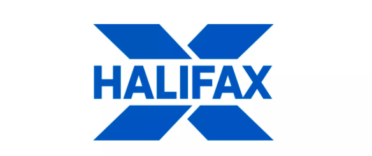It can be nerve-racking applying for a mortgage as you try to establish what a mortgage lender is going to be looking for and whether you are likely to meet the eligibility criteria. With the economic outlook as uncertain as it has been since the pandemic, having a clear idea of what factors lenders are taking into consideration is important.
What are lenders currently looking for?
This was one of the issues covered in our event, Property in a Pandemic: Is now the time to move? We asked our panel how lenders are currently making their decisions on who to lend to. You can check out our video recording of the event in the video below.
Can you afford the mortgage?
Even before 2020, lenders had been tightening their assessment of affordability. In the past, lenders typically multiplied your income by up to five times in order to work out the maximum amount you could borrow. Now they are carrying out more sophisticated analysis of how much you can reasonably pay, not only now, but if interest rates rise significantly in the future.
What is affordability?
Affordability is a calculation of what the lender thinks is the maximum amount you can afford to repay, factoring in your income and any other financial commitments. Since the rules tightened in 2014, lenders are obligated to determine affordability at the introductory interest rate, at their standard variable rate and on the level of the monthly repayment if the Bank of England base rate rose to 6-7%. In 2020, lenders are being even more stringent as they are wary of borrowers not being able to keep up with repayments and defaulting on the loan. This is because of the economic uncertainty in the wake of the COVID-19 crisis.
How is affordability calculated?
Lenders are tending to cap the maximum multiple of income to 4.5 times earnings, for both individual and joint mortgage applications, although some will go as high as 5 times earnings. While lenders have always required details of major financial commitments - such as personal loans, car finance and utility payments - they are now more likely to take into consideration outgoings such as gym memberships, insurance policies, school fees and the money you spend on eating out and entertainment.
In essence, mortgage lenders want to stress test the likely affordability of the loan based on your current circumstances and what would happen if those circumstances changed. If you are applying for a relatively large mortgage that will stretch the 4.5 times income multiple, it may be a good idea to shave off any non-essential spending beforehand. As the lender will almost certainly ask for bank statements for the previous three to six months, it is wise to be sensible with your spending during this period.
How much will I be able to borrow?
To get a rough idea of how much you'll be able to borrow and how much it will cost you, you can use the Habito* mortgage calculator.
Does employment status impact your mortgage application?
When assessing applications, lenders naturally favour those in long-term, full-time work with a steady income. Indeed, since the credit crisis, when self-certification mortgage applications were pulled, it has been more difficult for self-employed people to access mortgage products. It has become even tougher this year, with self-employed applicants required to provide more evidence of their earnings, in the form of business accounts and tax returns. For more information, read our article "Mortgages for self-employed: three things you need to know".
How your credit score affects your mortgage application
Your credit score has always played a big part in your mortgage application, with the lender running searches on your file to assess your creditworthiness. This has become all-the-more important this year as lenders look to minimise their exposure to risk, therefore becoming stricter on the types of borrowers they will accept.
If you know you have a poor credit rating, perhaps with missed payments on other loans or a CCJ in the past six years, you will be limited to a handful of lenders who will consider lending to you. In this situation, it is worth considering using an experienced mortgage broker with an in-depth understanding of the criteria each lender has to help you find the right deal for you.
If you are unsure what your credit score is, you can find out through services such as ClearScore and Credit Karma, which will give you an insight into your credit rating. To find out how to improve your rating and make yourself more attractive to lenders, look at our article "How to improve your credit score quickly".
We've also got a handy guide so can find out how to check your credit score for free.
If a link has an * beside it this means that it is an affiliated link. If you go via the link Money to the Masses may receive a small fee which helps keep Money to the Masses free to use. The following link can be used if you do not wish to help Money to the Masses - Habito




